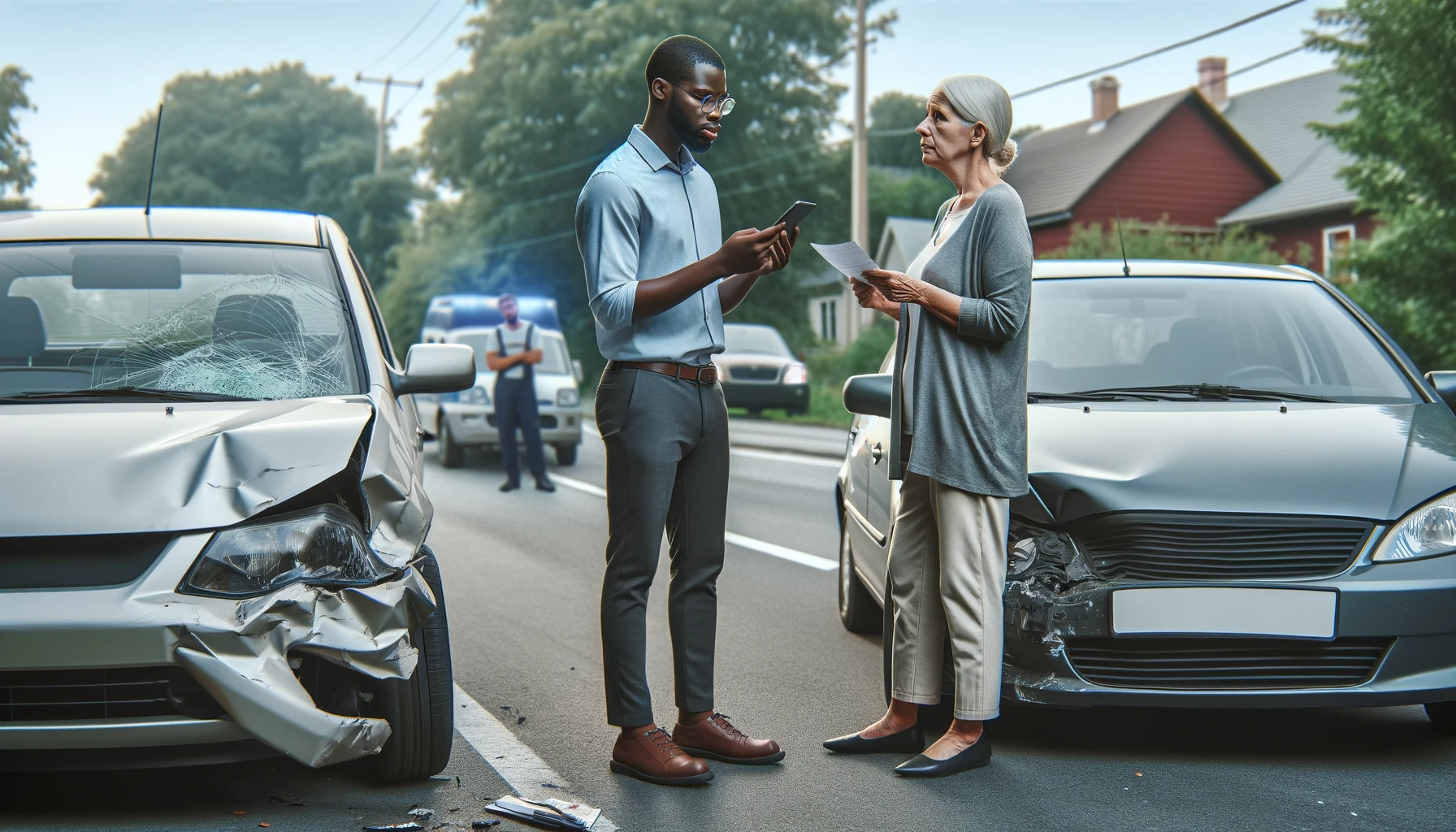Legal Resources: What to Do If You've Been a Passenger in an Uninsured Car Accident
Introduction
Finding yourself in a car accident is a harrowing experience, even more so when the vehicle you’re in is uninsured. As a passenger, you may feel powerless and confused about your legal rights and the steps you should take. This guide is here to help you navigate through this challenging situation, offering practical advice and legal resources to ensure you’re well-informed and protected.
Definition of Uninsured Car Accidents
An uninsured car accident involves at least one vehicle that does not have the legally required insurance coverage. This can lead to complications in claiming damages and compensation, making it crucial to understand your rights and options.
Statistics on Uninsured Drivers
According to the Insurance Information Institute, approximately 13% of motorists in the United States are uninsured. This statistic underscores the importance of knowing what to do if you find yourself in an accident with an uninsured driver.
Immediate Steps to Take After the Accident
Ensure Safety and Check for Injuries
Your first priority should always be safety. Check yourself and others for injuries and move to a safe location if possible. Call emergency services immediately if anyone is hurt.
Call the Police
Even if the accident seems minor, it’s essential to call the police. A police report will be crucial for any future legal proceedings or insurance claims.
Gather Information
Collect as much information as possible from the scene. This includes the names, contact details, and insurance information of all parties involved, as well as photographs of the accident scene and any visible damages.
Medical Attention and Documentation
Importance of Seeking Medical Attention
Seek medical attention as soon as possible, even if you don’t feel injured. Some injuries may not be immediately apparent. A medical professional can diagnose and document any injuries, which is vital for legal and insurance purposes.
Keeping Medical Records
Keep detailed records of all medical treatments and expenses. These documents will be necessary for any compensation claims.
Reporting the Accident
Notifying Your Insurance Company
Inform your insurance company about the accident promptly. Provide them with all the details and cooperate fully with their investigation.
Filing a Police Report
Ensure that a police report is filed and obtain a copy. This report will be an important piece of evidence when filing claims or seeking legal action.
Legal Rights as a Passenger
Understanding Passenger Rights
As a passenger, you have the right to seek compensation for any injuries or damages sustained in the accident. This includes medical expenses, lost wages, and pain and suffering.

Uninsured Motorist Coverage
If you have uninsured motorist coverage on your own insurance policy, it may cover your medical expenses and other damages. This coverage is designed to protect you when the at-fault driver lacks insurance.
Filing a Claim
How to File a Claim with Your Insurance
Contact your insurance provider to file a claim. Provide them with all necessary information, including the police report, medical records, and any other relevant documents.
What to Do if the Driver is At-Fault
If the driver of the uninsured vehicle is at fault, you may need to pursue compensation through their assets or explore other legal avenues. Consulting with a
Personal injury lawyer can be beneficial in these situations.
Dealing with Insurance Companies
Communicating with Insurance Adjusters
Be cautious when speaking with insurance adjusters. They may attempt to minimize the payout. It’s often helpful to have legal representation to handle these communications.
Common Pitfalls to Avoid
Avoid signing any documents or agreeing to settlements without consulting a lawyer. Insurance companies may offer lower settlements than you deserve.
Legal Options and Representation
A
Personal injury lawyer can guide you through the legal process, ensuring your rights are protected and helping you seek the maximum compensation available.
When to Consider Legal Action
If negotiations with insurance companies fail, or if the at-fault driver’s assets are insufficient to cover your damages, it may be necessary to file a lawsuit.
Compensation You May Be Entitled To
Types of Compensation
You may be entitled to various types of compensation, including medical expenses, lost wages, property damage, and pain and suffering.
Factors Affecting Compensation
The amount of compensation can be influenced by factors such as the severity of your injuries, the impact on your daily life, and the clarity of fault in the accident.
Understanding State Laws
Variation in State Laws
Laws regarding uninsured
Car accidents vary by state. It’s important to understand the specific laws and regulations in your state to navigate your case effectively.
No-Fault vs. At-Fault States
Some states follow no-fault laws, where each party’s insurance covers their own damages. Others are at-fault states, where the at-fault driver is responsible for compensating the other parties. Knowing your state’s laws will help you understand your rights and options.
Navigating the Legal Process
The process typically involves filing a complaint, discovery, negotiations, and potentially a trial. Each step requires careful preparation and documentation.

Timeline of a Legal Case
Legal cases can take time, often months or even years. Patience and persistence are crucial during this process.
Settling vs. Going to Court
Pros and Cons of Settling
Settling out of court can be faster and less stressful, but it may result in lower compensation. Going to court can potentially yield a higher payout but involves more time and effort.
What to Expect in Court
If your case goes to court, be prepared for a formal legal process. This includes presenting evidence, witness testimonies, and possibly undergoing cross-examination.
Emotional and Psychological Support
Coping with Trauma
Accidents can be traumatic. It’s important to seek emotional and psychological support, whether through therapy, support groups, or counseling.
Resources for Emotional Support
Various organizations and hotlines offer support for accident victims. Don’t hesitate to reach out for help.
Conclusion
Being a passenger in an uninsured
Car accident can be overwhelming and confusing. However, by understanding your rights, taking the appropriate steps, and seeking the necessary legal and medical support, you can navigate this challenging situation. Remember, you don’t have to go through this alone—there are resources and professionals available to help you every step of the way.
Look for an attorney who has the right legal resources for your legal needs.
Contact us here on the
Warmuth Law website or through our hotline 888-517-9888.
Frequently Asked Question(FAQ's)
1. What if the driver flees the scene?
If the driver flees the scene, immediately report the incident to the police. Try to gather any possible information about the vehicle and driver, such as the license plate number or a description of the car.
2. Can I claim if I wasn’t wearing a seatbelt?
Yes, you can still file a claim even if you weren’t wearing a seatbelt, although it may affect the amount of compensation you receive. It’s important to discuss the specifics with a
Personal injury lawyer.
3. How long do I have to file a claim?
The time limit to file a claim, known as the statute of limitations, varies by state. It’s crucial to act promptly and consult with a lawyer to ensure you don’t miss any deadlines.
4. What if the accident was partly my fault?
If you share some fault in the accident, your compensation may be reduced according to your degree of fault. This is known as comparative negligence, and the specifics can vary depending on state laws.
5. Can I still get compensation if I have no health insurance?
Yes, you can still seek compensation for medical expenses even if you don’t have health insurance. Your uninsured motorist coverage or a successful legal claim against the at-fault driver can cover these costs.













